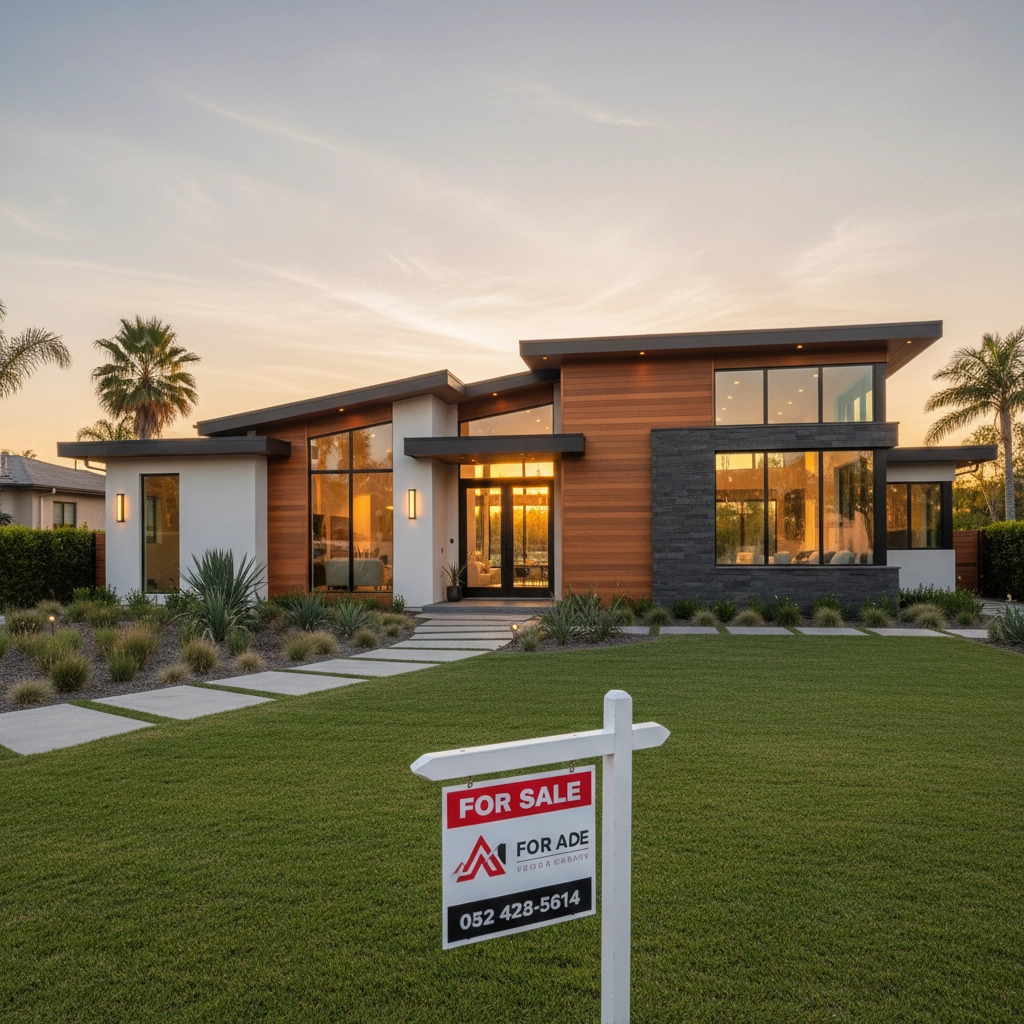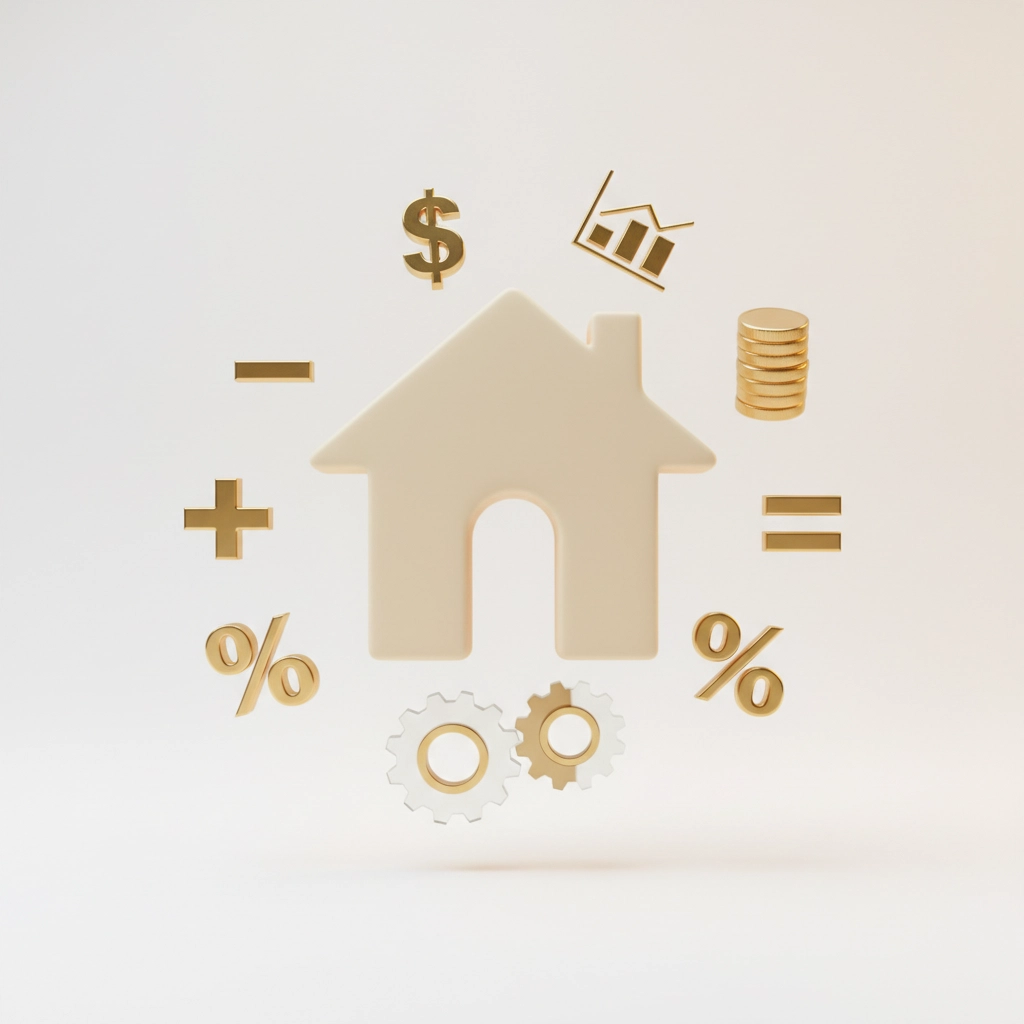If you're waiting for the flowers to bloom before you start house hunting, I've got…
Trump Floats 50-Year Mortgage: Is It the Answer to Housing Affordability or a Risky Bet?
The mortgage world is buzzing after President Trump announced he's working on a 50-year mortgage option to tackle America's housing affordability crisis. Federal Housing Finance Agency Director Bill Pulte jumped on social media this weekend, calling it "a complete game changer" and "a potential weapon in a WIDE arsenal of solutions."
But hold up – before you get excited about those lower monthly payments, let's dig into what this actually means for your wallet, your future, and whether it's the housing hero we've been waiting for or just kicking the can down a very, very long road.
What Exactly Is Trump Proposing?
The idea is pretty straightforward: instead of the traditional 30-year mortgage most of us know and love (or love to hate), you'd have the option to stretch your payments over 50 years. It's like going from paying off your car loan in 5 years to paying it off in 8 – your monthly payment drops, but you're making payments for way longer.
Trump's team is positioning this as a direct response to the housing affordability crisis that's got millions of Americans priced out of homeownership. With mortgage rates stubbornly sitting above 6% and home prices still sky-high in most markets, the math on monthly payments has become pretty brutal for first-time buyers.
The Monthly Payment Magic Trick
Let's talk numbers, because that's where this proposal gets interesting – and where the devil lives in the details.
Say you're looking at a $300,000 home with 5% down and a 5% interest rate. Here's how your monthly payments would shake out:
- 15-year mortgage: $2,254/month
- 30-year mortgage: $1,530/month
- 50-year mortgage: $1,294/month
That's a $236 monthly savings compared to a 30-year loan – nothing to sneeze at when you're trying to qualify for a mortgage or just keep your budget manageable.
For a bigger loan – say $360,000 on a $400,000 home at 6.25% – you'd save about $250 per month going with the 50-year option. When you're house hunting and every dollar counts, those savings can mean the difference between qualifying for that home you want and settling for something smaller.
But Here's the Catch (And It's a Big One)
Before you start planning your 50-year mortgage celebration, let's talk about the elephant in the room: the total cost. While your monthly payments would be lower, the amount you'd pay over the life of the loan would be absolutely staggering.
Think about it – you're paying interest for 20 extra years compared to a traditional 30-year mortgage. That means decades more of interest payments going to your lender instead of building equity in your home.
Kate Wood from NerdWallet put it perfectly: "The total interest paid over the life of the loan would be staggering, since even with a low rate, you're looking at 50 years' worth of interest."
Plus, you'd be building equity incredibly slowly. With a 30-year mortgage, you start building meaningful equity after the first 10-15 years. With a 50-year loan, you'd be making mostly interest payments for decades.
The Regulatory Reality Check
Here's something that might surprise you: 50-year mortgages aren't actually legal under current federal law. Trump's proposal would need Congressional approval to become reality, which means it's going to face political hurdles and regulatory scrutiny.
The current mortgage system is built around 30-year loans for good reason – they balance monthly affordability with reasonable payoff timelines. Extending that to 50 years would require significant changes to how government-sponsored entities like Fannie Mae and Freddie Mac operate.
Don't expect this to happen overnight, even if Trump's administration pushes hard for it.
What the Experts Are Saying
The mortgage industry is pretty split on this one, and honestly, that should tell you something.
On one side, you've got folks who see this as a potential lifeline for younger buyers who are getting squeezed out of the market. The argument goes: isn't it better for someone to own a home with a 50-year mortgage than to rent forever because they can't afford a 30-year payment?
On the flip side, critics are calling this a recipe for lifelong debt that could trap borrowers in a cycle of never-ending mortgage payments. Some housing economists worry it could actually make the affordability crisis worse by allowing home prices to rise even higher, since buyers could technically afford bigger monthly payments.
Several members of Congress have already expressed skepticism, with some calling it a "wealth transfer to lenders" rather than a real solution for homebuyers.
The Bigger Picture: Housing Crisis Context
To understand why Trump's team is even considering this, you need to look at just how broken housing affordability has become. The median U.S. household is currently spending about 39% of their monthly income on mortgage payments – way above the 28% that financial experts recommend.
We're also dealing with what economists call the "lock-in effect." Millions of homeowners are sitting on mortgages with rates in the 2-3% range from 2020-2021, and they're refusing to sell because they'd have to trade up to current rates above 6%. This is keeping inventory super tight and prices high.
A 50-year mortgage doesn't solve either of these underlying problems. It's more like putting a band-aid on a broken arm – it might make you feel a little better temporarily, but the real issue is still there.
What This Means for You as a Buyer
If 50-year mortgages do become legal, they'll probably appeal most to first-time buyers and younger borrowers who prioritize getting into homeownership over minimizing total interest costs.
But before you get too excited about lower monthly payments, consider this: you'd essentially be signing up for a mortgage payment that could last until retirement age or beyond. That's a massive commitment that could limit your financial flexibility for decades.
There are also questions about how these loans would be priced. Lenders might charge higher interest rates on 50-year mortgages to compensate for the extended risk, which could eat into some of those monthly savings.
The Bottom Line: Proceed with Caution
Trump's 50-year mortgage proposal is getting attention because it addresses a real problem – monthly affordability. But like a lot of quick fixes, it might create new problems while solving the immediate one.
The reality is that extending mortgage terms to 50 years is more about managing the symptoms of the housing crisis than curing the disease. We still need more housing supply, better zoning laws, and policies that address the root causes of high home prices.
If you're currently shopping for a home or thinking about it, my advice is to focus on what's available right now rather than waiting for potential policy changes. Interest rates could change, programs could evolve, but the best time to buy is usually when you're financially ready and have found the right home for your situation.
Getting Professional Guidance
Whether 50-year mortgages become reality or not, navigating today's mortgage market requires expert guidance. The lending landscape is complex, with dozens of different loan programs, each with their own requirements, benefits, and drawbacks.
At Affinity Group Mortgage, we've been helping buyers understand their options and find the right financing solution for their unique situation. If and when new mortgage products like 50-year loans become available, we'll be ready to help you understand how they fit into your long-term financial picture.
The key is working with a mortgage professional who can run the numbers, explain the trade-offs, and help you make an informed decision based on your specific goals and circumstances. Because whether it's a 15-year, 30-year, or potentially 50-year mortgage, the best loan is the one that aligns with your financial situation and homeownership goals.
Want to explore your current mortgage options? Get a quote and let's talk about what makes sense for your situation – both now and in the future.








